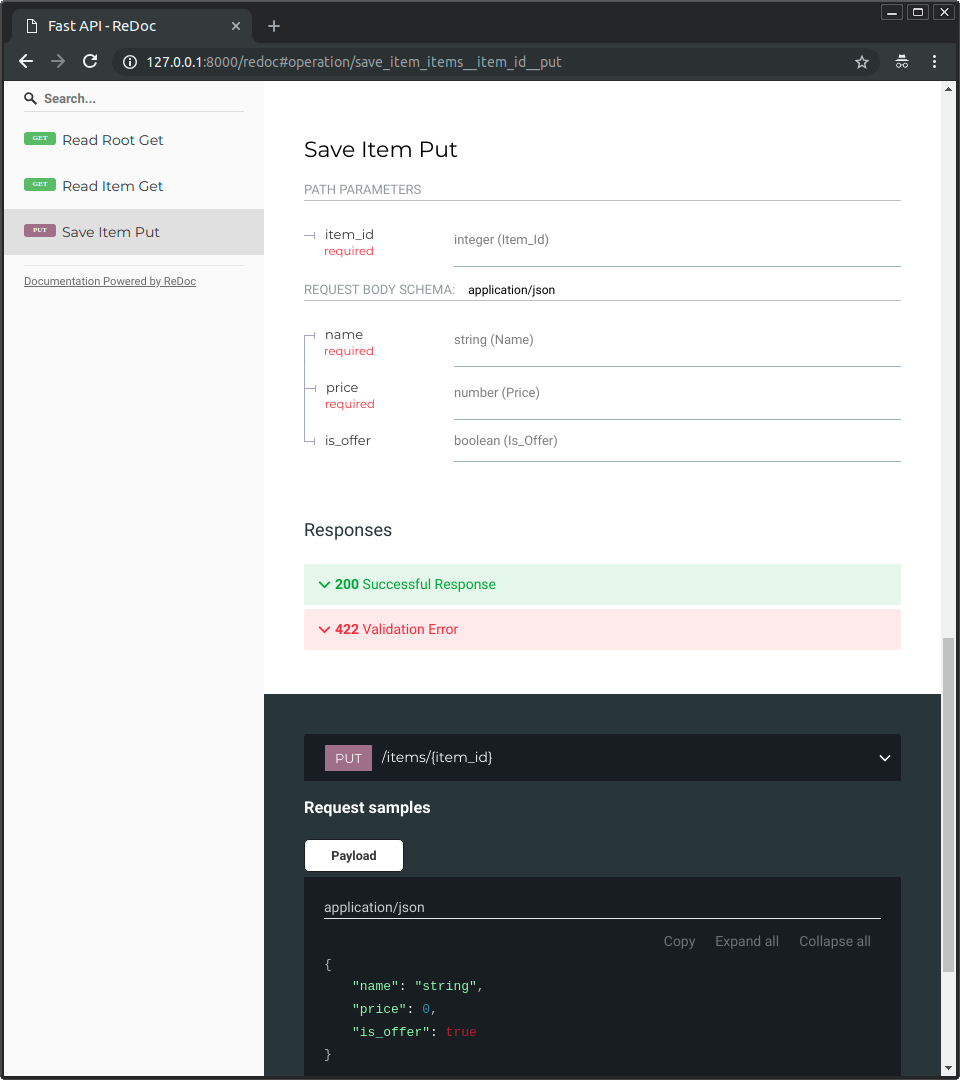- Sort Score
- Result 10 results
- Languages All
Results 1 - 10 of 1,051 for Just (0.15 sec)
-
guava/src/com/google/common/collect/ConcurrentHashMultiset.java
} else { // if our write lost the race, it must have lost to a nonzero value, so we can stop return countMap.putIfAbsent(element, new AtomicInteger(newCount)) == null; } } int oldValue = existingCounter.get(); if (oldValue == expectedOldCount) { if (oldValue == 0) { if (newCount == 0) { // Just observed a 0; try to remove the entry to clean up the mapJava - Registered: Fri Apr 05 12:43:09 GMT 2024 - Last Modified: Thu Feb 22 21:19:52 GMT 2024 - 20.9K bytes - Viewed (0) -
architecture/networking/controllers.md
In general, Istio does not fail on missing CRDs and prefers to treat these as if there were just zero resources for that client. The `NewDelayedInformer` abstracts that entirely, offering the same API as normal `kclient.Client`. * Simple object filtering. Beyond just static filters on objects, `kclient` supports _dynamic filters_ that can change at runtime.
Plain Text - Registered: Wed May 01 22:53:12 GMT 2024 - Last Modified: Fri Feb 09 17:41:25 GMT 2024 - 4.9K bytes - Viewed (0) -
docs/en/docs/deployment/https.md
## Recap Having **HTTPS** is very important, and quite **critical** in most cases. Most of the effort you as a developer have to put around HTTPS is just about **understanding these concepts** and how they work.
Plain Text - Registered: Sun May 05 07:19:11 GMT 2024 - Last Modified: Thu Jan 11 16:31:18 GMT 2024 - 12K bytes - Viewed (0) -
docs/en/docs/tutorial/security/simple-oauth2.md
The spec also states that the `username` and `password` must be sent as form data (so, no JSON here). ### `scope` The spec also says that the client can send another form field "`scope`". The form field name is `scope` (in singular), but it is actually a long string with "scopes" separated by spaces. Each "scope" is just a string (without spaces).
Plain Text - Registered: Sun May 05 07:19:11 GMT 2024 - Last Modified: Thu Apr 18 19:53:19 GMT 2024 - 12.5K bytes - Viewed (0) -
docs/en/docs/tutorial/dependencies/index.md
You only give `Depends` a single parameter. This parameter must be something like a function. You **don't call it** directly (don't add the parenthesis at the end), you just pass it as a parameter to `Depends()`. And that function takes parameters in the same way that *path operation functions* do. !!! tip
Plain Text - Registered: Sun May 05 07:19:11 GMT 2024 - Last Modified: Thu Apr 18 19:53:19 GMT 2024 - 11.6K bytes - Viewed (0) -
docs/en/docs/advanced/openapi-callbacks.md
Plain Text - Registered: Sun May 05 07:19:11 GMT 2024 - Last Modified: Thu May 02 22:37:31 GMT 2024 - 7.7K bytes - Viewed (0) -
guava-testlib/src/com/google/common/testing/FreshValueGenerator.java
return freshness.get(); } @SuppressWarnings("removal") // b/321209431 -- maybe just use valueOf here? @Generates Integer generateInteger() { return new Integer(generateInt()); } @Generates long generateLong() { return generateInt(); } @SuppressWarnings("removal") // b/321209431 -- maybe just use valueOf here? @Generates Long generateLongObject() {
Java - Registered: Fri Apr 19 12:43:09 GMT 2024 - Last Modified: Wed Apr 17 16:33:44 GMT 2024 - 28.6K bytes - Viewed (0) -
docs/en/docs/tutorial/extra-models.md
## Response with arbitrary `dict` You can also declare a response using a plain arbitrary `dict`, declaring just the type of the keys and values, without using a Pydantic model. This is useful if you don't know the valid field/attribute names (that would be needed for a Pydantic model) beforehand. In this case, you can use `typing.Dict` (or just `dict` in Python 3.9 and above): === "Python 3.9+" ```Python hl_lines="6"
Plain Text - Registered: Sun May 05 07:19:11 GMT 2024 - Last Modified: Thu Apr 18 19:53:19 GMT 2024 - 7.7K bytes - Viewed (1) -
docs/en/docs/features.md
 ### Just Modern Python It's all based on standard **Python type** declarations (thanks to Pydantic). No new syntax to learn. Just standard modern Python.
Plain Text - Registered: Sun May 05 07:19:11 GMT 2024 - Last Modified: Thu May 02 22:37:31 GMT 2024 - 9.3K bytes - Viewed (0) -
android/guava/src/com/google/common/collect/ConcurrentHashMultiset.java
} else { // if our write lost the race, it must have lost to a nonzero value, so we can stop return countMap.putIfAbsent(element, new AtomicInteger(newCount)) == null; } } int oldValue = existingCounter.get(); if (oldValue == expectedOldCount) { if (oldValue == 0) { if (newCount == 0) { // Just observed a 0; try to remove the entry to clean up the mapJava - Registered: Fri May 03 12:43:13 GMT 2024 - Last Modified: Thu Feb 22 21:19:52 GMT 2024 - 20.9K bytes - Viewed (0)